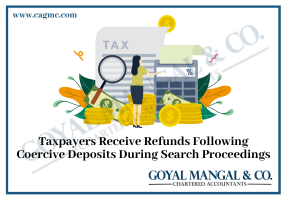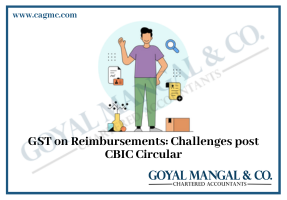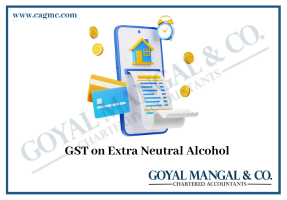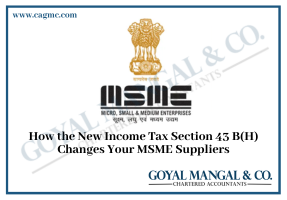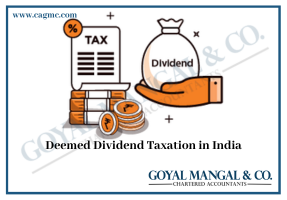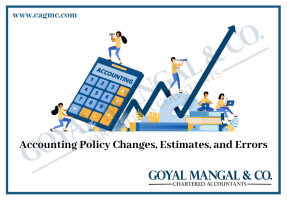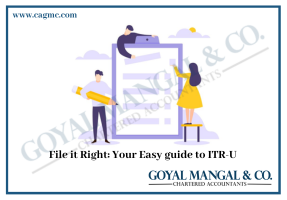
The Central Board of Indirect Taxes and Customs (CBIC) has made the Customs Audit Regulations, 2018 which shall come into force on the date of their publication in the official gazette. The Customs Act, of 1962, is an important legislation that governs the levy of customs duties and regulation of imports and exports in India. The Act provides for the collection of revenue and prevention of smuggling through a system of customs audits. A Customs audit is an important mechanism that helps to ensure compliance with the provisions of the Customs Act, of 1962, and other related laws. In this article, we will discuss Audits under the Customs Act of 1962.
Quick Look
Audit under Customs Audit Regulations, 2018 includes examination or verification of declaration, record, entry, import or export license, authorisation, scrip, certificate, permission etc books of accounts, test or analysis reports and any other document relating to imported goods or export goods or dutiable goods and may include inspection of sample and goods.
Let us find out what is the meaning of Audit under Customs Act, 1962 in great detail.
What is Customs Audit under Customs Act, 1962?
Customs audit is the process of examining the accounts and records of a taxpayer to verify the correctness of the declarations made in the customs documents. The purpose of customs audit is to ensure that the revenue due to the government is collected correctly, and to prevent any revenue leakage due to under-declaration, mis-declaration, or other fraudulent practices. Customs audit is carried out by the Customs department and it can be conducted either before or after the clearance of goods.
The Objective of Customs Audit under Customs Act, 1962
The primary objective of customs audit is to ensure that the importers and exporters are compliant with the customs laws and regulations. The audit is conducted to identify any discrepancies, errors, or omissions in the entity’s customs declarations, classification of goods, valuation, and any other customs-related matters. Customs audit also helps in identifying areas where the entity can improve its compliance procedures.
The main objectives of customs audit are as follows:
- To verify the accuracy of the declarations made in the customs documents.
- To ensure that the revenue due to the government is collected correctly.
- To prevent any revenue leakage due to under declaration, misdeclaration, or other fraudulent practices.
- To detect any evasion of customs duty or any other illegal activities related to imports and exports.
- To educate and assist the taxpayers in complying with the provisions of the Customs Act, 1962, and other related laws.
Who can do Custom Audit?
In accordance with the said regulation and amendment in Customs Act, 1962, officers of customs and central excise will conduct the audit at the premises of importer and exporter vide Notification Number 72/2011-Customs (N.T.).
What are the different types of audits in the Customs Act, of 1962?
The following are the types of Audit:
- Transaction based Audit: Transaction-based controls are those controls applied to each individual shipment at the time of crossing the border, such as physical examination, verification of value, origin and classification of goods, sampling, verification of certificates, licences and permits, etc.
- Premises based Audit: Under this Audit process, the legal compliance and correct assessment of Customs duties will be verified by the Customs at the premises of importers, exporters and other related entities felt necessary in the completion of this process.
- Theme based Audit: A theme based audit is an in-depth examination of a selected area, which may involve more than one public sector entity. Such in-depth examination enables AGO to report on good practices in financial governance and controls that it may come across in the course of the audit, in addition to lapses.
Manner of conducting audit as given under Customs Audit Regulations, 2018
Following guidelines are prescribed under the Customs Audit Regulations, 2018:
- It is that the proper office can conduct audit either in his office or in certain cases at the premises of an auditee.
- That the proper officer where considered necessary, request the auditee to furnish documents, information or record including electronic record, as may be relevant to audit.
- The proper officer shall give not less than fifteen days advance notice to the auditee to conduct audit at the premises of the auditee.
- The proper officer may, where considered necessary, inspect the imported goods or export goods or dutiable goods at the premises of the auditee or request the auditee to produce sample.
- The proper officer shall inform the auditee of the objections, if any, before preparing the audit report to provide him an opportunity to offer clarifications with supporting documents.
- Where the auditee is in agreement with the audit findings, he may make voluntary payments of duty, interest or other sums, due, if any, in part or in full and the proper officer shall record the same in the audit report.
- Where the proper office has asked the auditee to furnish information, document, record or sample for the purposes of audit, it shall be mandatory for the proper officer to inform outcome of such audit to the auditee.
- The proper officer shall complete audit in cases where it is conducted at the premises of the auditee within thirty days from the date of starting of the audit.
Some other important factors to be kept in mind regarding Audit under Customs Act, 1962
The following are some important factors to be kept in mind regarding Audit under Customs Act, 1962:
- Selection for Audit: The selection of auditee or the selection of import declarations or export declarations, as the case may be, for the purposes of audit shall primarily be based on risk evaluation through appropriate selectivity criteria
- Assistance of Professionals: If the proper officer, having regard to the nature and complexity of the audit, is of the opinion that the audit has to be done with the assistance of a professional like Chartered Accountant, Cost Accountant, an expert in the field of computer sciences or information technology etc., may do so, with the previous approval of the Principal Commissioner/Commissioner of Customs.
- Penalty: Any auditee contravening with any provision of these regulations or abets such contravention or fails to comply with any provision of these regulations with which it was his duty to comply, shall be liable to a penalty which may extend to fifty thousand Indian rupees (15000).
Conclusion
The Central Board of Indirect Taxes and Customs (CBIC) has made the Customs Audit Regulations, 2018 which shall come into force on the date of their publication in the official gazette. Implementation of Customs Audit Regulations, 2018 All above steps have been introduced to ensure speedy approval of import and export consignments on self-assessment basis and audit will be conducted of such import and export consignment on a periodical basis at the premises of the importer and exporter.

